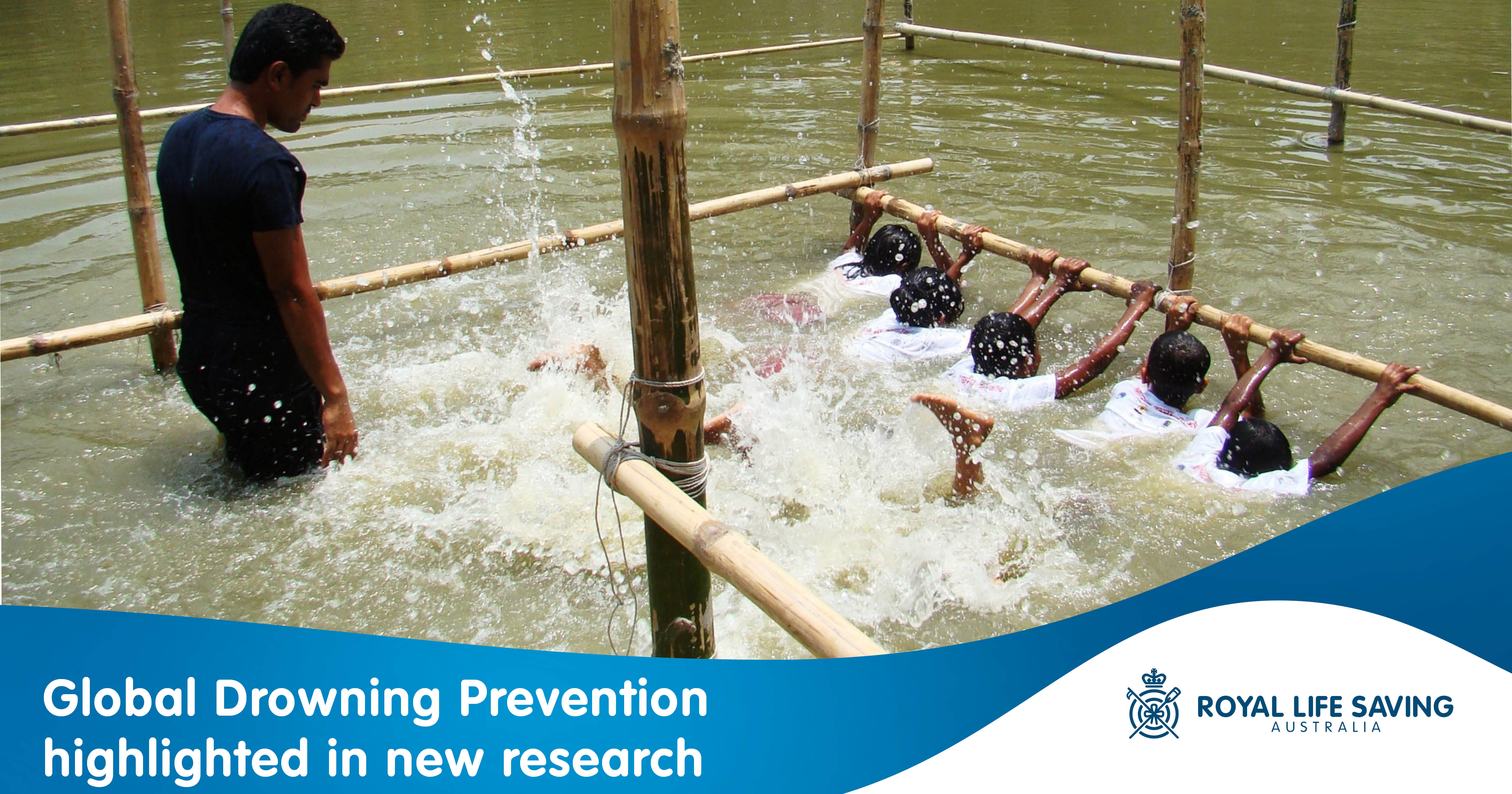Published 22 April 2022

The emergence of drowning prevention on the global health agenda has been highlighted in a new research paper.
The paper, which is published today in The Lancet Global Health, traces the growing recognition of drowning as a health issue globally and its path from an under-recognised cause of death to becoming the subject of a historic United Nations Resolution.
The research was conducted by Royal Life Saving Society – Australia Chief Executive Officer Justin Scarr, Dr Jagnoor Jagnoor, Prof Robyn Norton AO and Prof Kent Buse of the George institute for Global Health, and the World Health Organization’s Dr David Meddings.
“The United Nations Resolution on Global Drowning Prevention, declared in April 2021, was important because it gave the issue of drowning the prominence it had previously lacked, despite being a leading cause of injury death globally,” Mr Scarr said.
“We interviewed leading experts, and asked two questions; how did we get here? and how do we ensure the resolution results in lives saved?”
Those with firsthand experience of the resolution process and knowledge of the drowning prevention journey during the past two decades were identified. Key informants from United Nations agencies, national governments, lifesaving organisations, academia and philanthropic groups were interviewed.
The research identified three key factors which combined to make drowning a prominent health issue.
Research that emerged from countries including Bangladesh, Vietnam and Thailand using innovative methodologies including verbal autopsy and other community survey methods, and shifts in other disease burdens, particularly in children, showed for the first time the scale of drowning as a health issue.
Focusing on the disproportionate rates of drowning in low- and middle-income contexts and looking at it through a health and sustainable development lens drew the attention of policy makers internationally.
And strong, coordinated political advocacy by a small coalition of drowning prevention experts navigated and secured support from United Nations Member States.
The research also outlines the next steps required to make sure the United Nations Resolution result in a reduced number of drowning deaths globally.
The actions include: Implementation research of effective solutions; bringing in more allies from sectors which relate to drowning prevention; strengthen capacity for multisectoral action; expanding research in different contexts; and expanding drowning prevention focus and reach across all regions, specifically Africa, South and central America, and Small Island Developing Nations.
You can read a full copy of the research here: https://www.thelancet.com/journals/langlo/article/PIIS2214-109X(22)00074-2/fulltext
